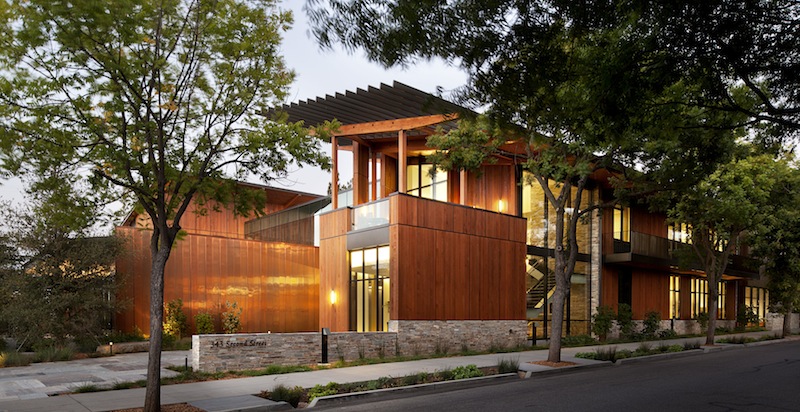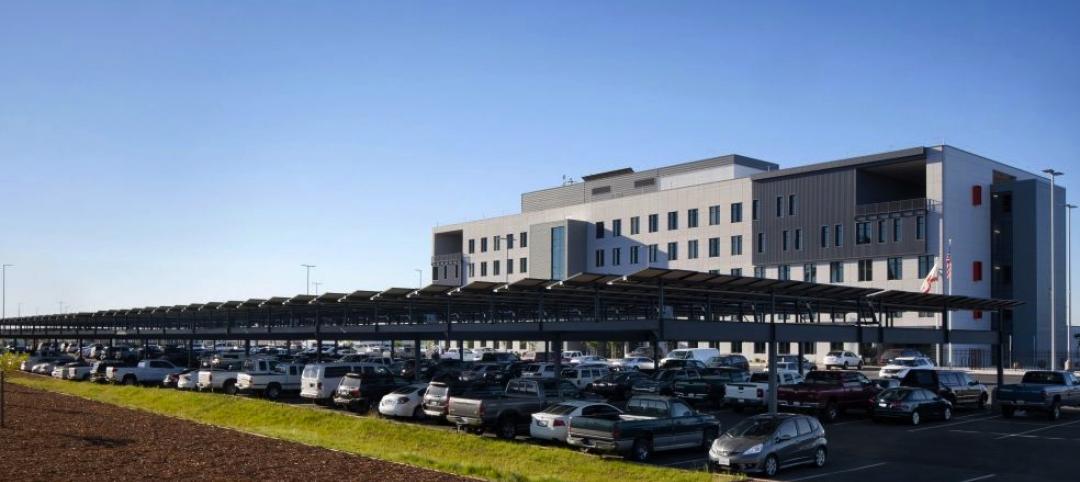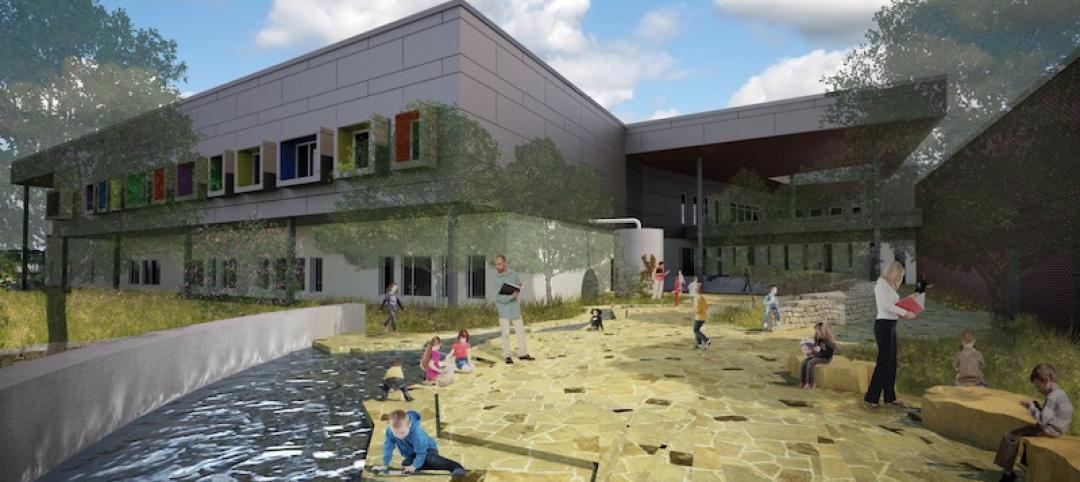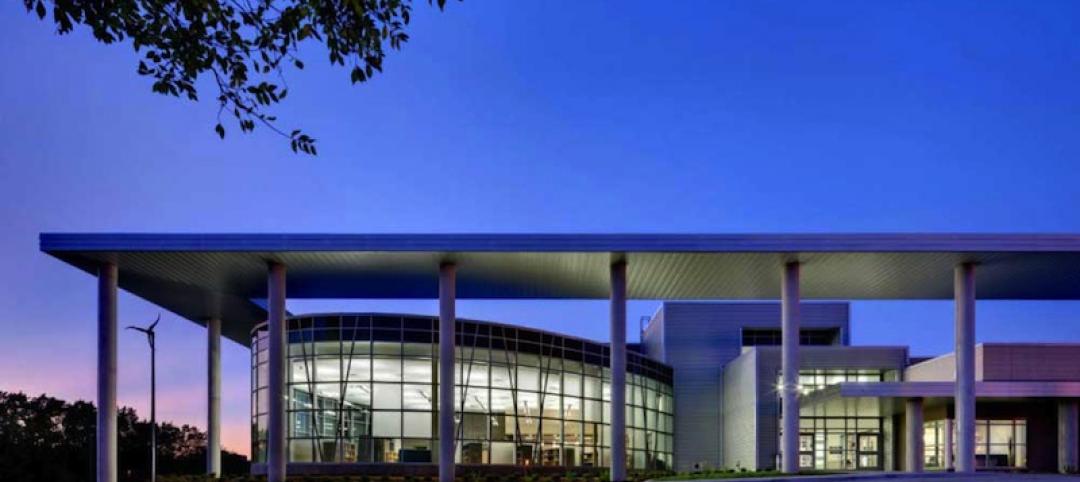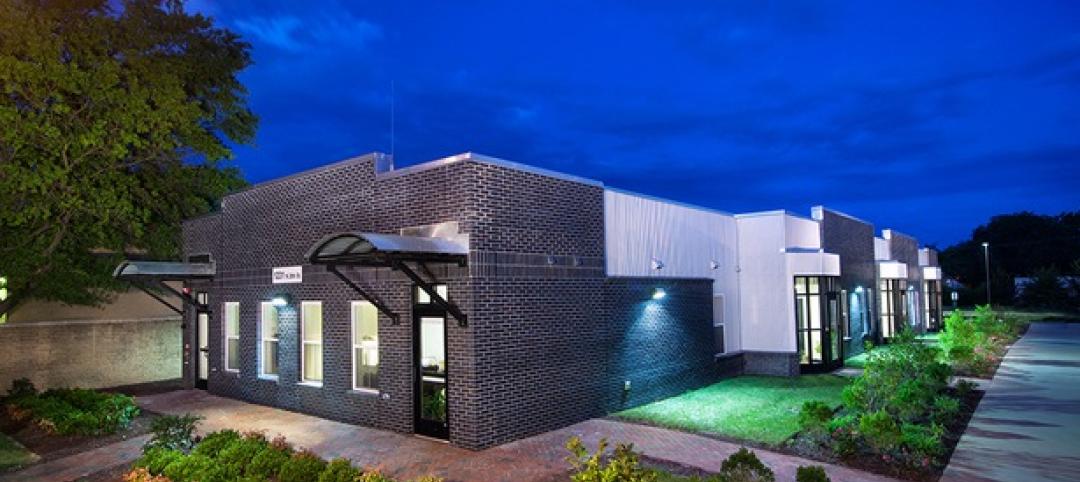The Packard Foundation’s 49,000-sf headquarters recently achieved Net Zero Energy Certification through the International Living Future Institute (ILFI), making it the largest such building in the world. The Los Altos, Calif., structure generated more than enough electricity to meet its needs during the first full year of occupancy.
Sustainable strategies that allowed the building to achieve Net Zero and LEED Platinum certifications include:
- Electricity production via 915 rooftop solar panels
- Effective use of daylight to supplement artificial lighting
- Efficient heating and cooling using innovative chilled beam technology
- Storing up to 20,000 gallons of rainwater for irrigation and toilet flushing
- Use of living green roof and rooftop gutters to assist with rainwater collection
- Recycling 95% of materials from pre-existing buildings
- Crafting all interior doors from locally salvaged eucalyptus trees
- 100% outside air for ventilation
- Desktop alerts that indicate when doors and windows can be opened for natural ventilation
Editor's note: This is sponsored content
More from Author
Jim Young | Jan 16, 2014
West Point releases plan to achieve net zero campus-wide
The installation has an ambitious plan to move to 100% energy efficiency through several initiatives including more renewable energy production and energy efficiency retrofits.
Jim Young | Jan 7, 2014
World Expo village in Kazakhstan to be triple net zero
World Expo 2017, planned for Astana, Kazakhstan, calls for an expo village that rates triple net zero—zero net use of energy and water and zero net generation of landfill waste.
Jim Young | Jan 2, 2014
Sacramento utility maintenance facility earns LEED Platinum, targets net zero
The Sacramento Municipal Utility District’s new maintenance facility, which is targeting net zero, has received LEED Platinum certification.
Jim Young | Dec 27, 2013
Grand Cancun to be first net-zero energy luxury eco-tourism resort
Using a marine platform concept instead of an artificial island, the development will create more space with less impact in the fragile marine ecosystem.
Jim Young | Dec 16, 2013
Irving, Texas building state’s second net-zero school
Lee Elementary School, scheduled to open in fall 2014, will be net-zero-ready, and if the school board decides to sell district bonds and allow the purchase of additional solar panels, will be a true net-zero facility.
Jim Young | Dec 9, 2013
Skaneateles, N.Y., converts old firehouse to net-zero village hall
The Finger Lakes village of Skaneateles, N.Y., renovated its vacant firehouse into Skaneateles Village Hall, the first municipal net-zero energy building in the state of New York.
Jim Young | Dec 2, 2013
Security is key component of Army’s net-zero assessment strategy
For the U.S. Army, creating secure sources of energy is an important driver for its net zero goals. Critical military missions are at a high risk of failure in the event of an electric grid failure, according to a Defense Science Board report.
Jim Young | Nov 25, 2013
New California codes moving state toward net-zero requirements
Under the new Title 24, all new residential construction must be net zero by 2020, with all new commercial buildings achieving this goal by 2030.
Jim Young | Nov 19, 2013
Net-zero senior housing project aimed at low-income residents in Virginia
A big driver to achieve net-zero was to offer affordable housing with reduced energy costs for low-income seniors.
Jim Young | Nov 11, 2013
New San Francisco 49ers stadium will achieve net zero thanks to 49 large solar panels
The installation of 49 large rooftop solar panels at the 49ers new stadium outside San Francisco will help the arena achieve net-zero energy use, according to NRG, the company that installed the panels.

